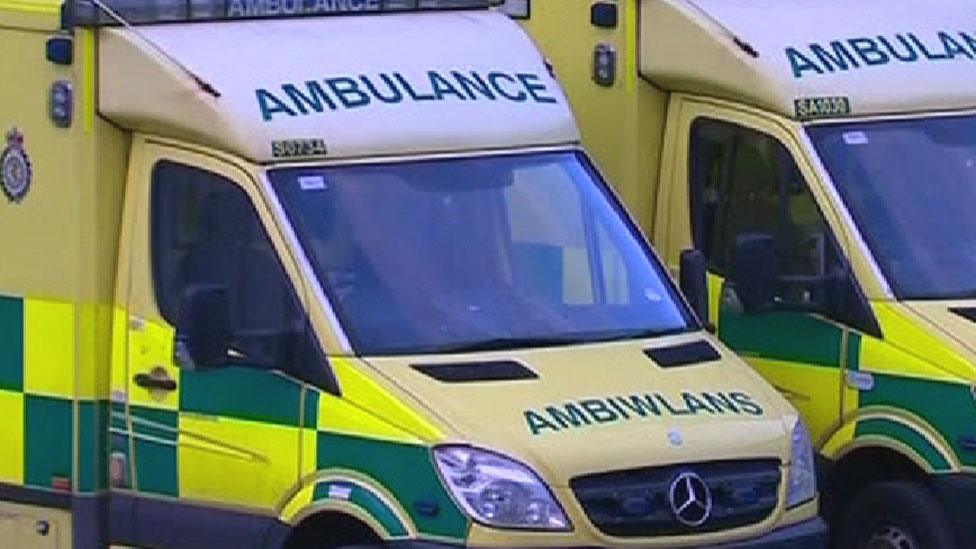Ambulance 999 target times 'should be reinstated for stroke victims'
- Published
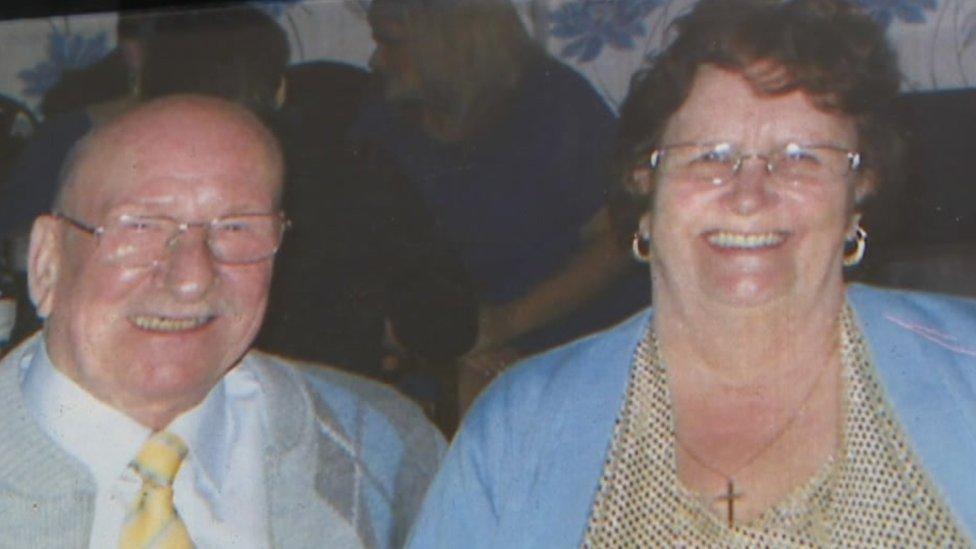
Mair Gore's family said she had to wait five hours to get the drugs needed to stop her stroke getting worse
A family claim the Welsh Government is "playing with people's lives" after axing ambulance waiting time targets to reach suspected stroke victims.
Mair Gore's family said she was told to wait two-and-a-half hours for an ambulance after having a stroke in her home - and claim she waited five hours before getting the drugs she needed.
They now want ambulance response targets for strokes to be reinstated.
The Welsh Government say they want to "deliver further improvements".
Strokes are in the amber category of the ambulance 999 traffic light priority list - and emergency response time targets were scrapped for all but the life-threatening red category cases in 2015.
Now Mair Gore's family want "the whole system to change" after the mother from Rhondda Cynon Taff survived after suffering a stroke in her Mountain Ash home.
"[We] were told it would take two-and-a-half hours at least for an ambulance to go to the house, which is totally unacceptable," said daughter-in-law Nia Gore.
"A first responder arrived but there was still an urgency to get her to a hospital.
Thousands of people are putting their lives at risk by dismissing the symptoms of mini-strokes as just 'a funny turn'.
"That time is vital because it could have been a totally different outcome."
More than 4,000 people had to wait over an hour for medical assistance after suffering strokes in Wales between January and March this year, according to a freedom of information request from Plaid Cymru.
The figures claim waiting times for amber incidents have doubled in three years - and the average waiting time is now 26 minutes.
The NHS tells patients "the sooner a person receives treatment for a stroke, the less damage is likely to happen" and "dial 999 immediately" if you see someone has stroke symptoms.
The Gore family's call is the latest for suspected stroke victims to be moved up the priority list after a review carried out by clinicians, the Welsh Ambulance Service, the government and medical experts.
"The whole system needs changing so people don't have to wait so long," added Nia Gore, from Aberystwyth.
"They are playing with people's lives."
Mrs Gore has since recovered but her daughter-in-law admits "it could've been a totally different story".
"She's lucky because she is a strong, determined lady and wanted to get better - but that's no thanks to the ambulance."
Katie Chappelle from the Stroke Association told BBC Radio Wales Breakfast with Claire Summers "time is of the essence" when someone is having a stroke.
"We want to see the ambulance service measuring the time it takes from picking them up to getting the treatment they need.
"In England, the target time is 180 minutes or three hours [from] that initial 999 call to getting the treatment, in Wales there will be no target time and we feel they need to go a step further, so we can make sure patients who are potentially having a stroke in Wales aren't losing out."
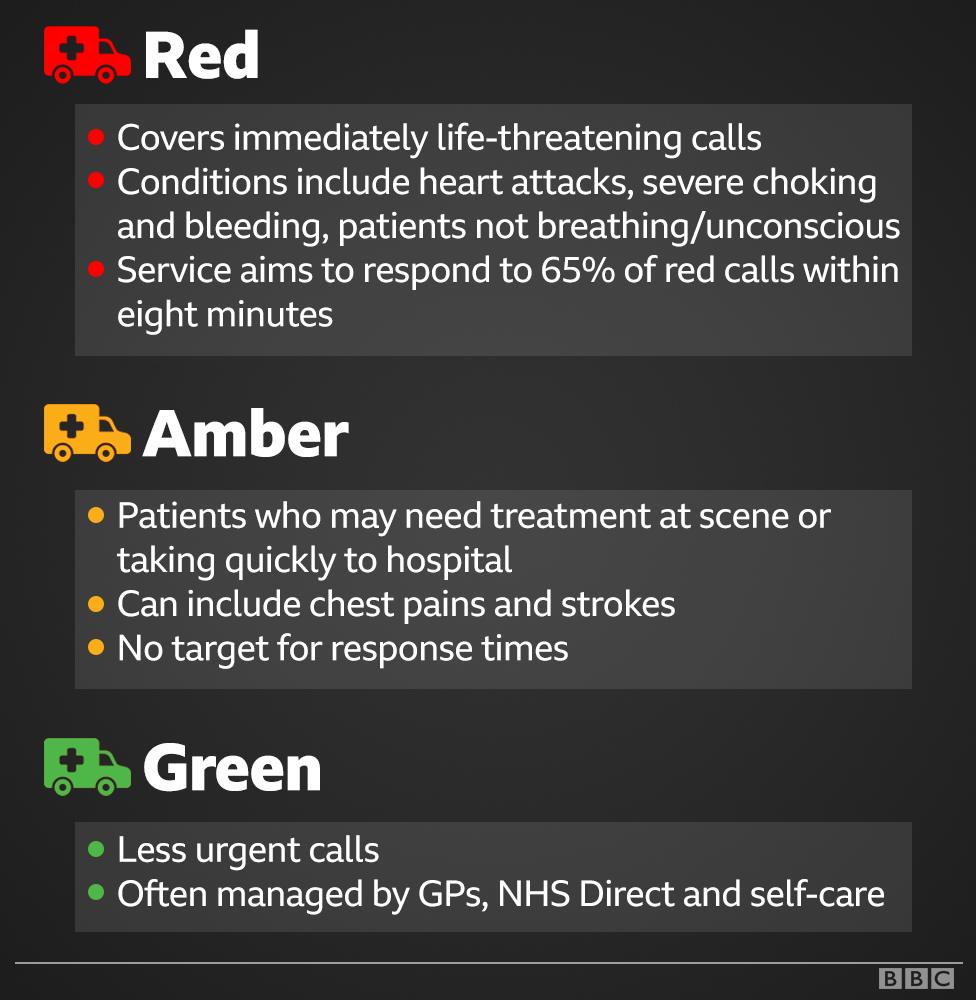
Ambulances respond to calls depending on how they have been categorised
Plaid Cymru's shadow health minister Helen Mary Jones claims an average hour-long wait time for stroke sufferers is "shocking".
"We know it is a life-threatening condition and we know if people get the right treatment at the right time then they are not only more likely to survive but there's every chance they would have a healthy life," said the Mid and West Wales AM.
"We want the Welsh Government to set a specific target for strokes and we want them to set a target from the time the call is made to the time the people arrive in the right ward."
The Welsh Ambulance Service acknowledge some patients "wait too long for help" because of problems with ambulance availability and are working to make improvements so patients get treatment quicker.
A Welsh Government statement added: "Following a review of the Welsh Ambulance Service's amber category, we are continuing to work with partners, including Stroke Association Wales, to understand how we can deliver further improvements for patients suspected of having a stroke."
- Published25 July 2019

- Published20 June 2019
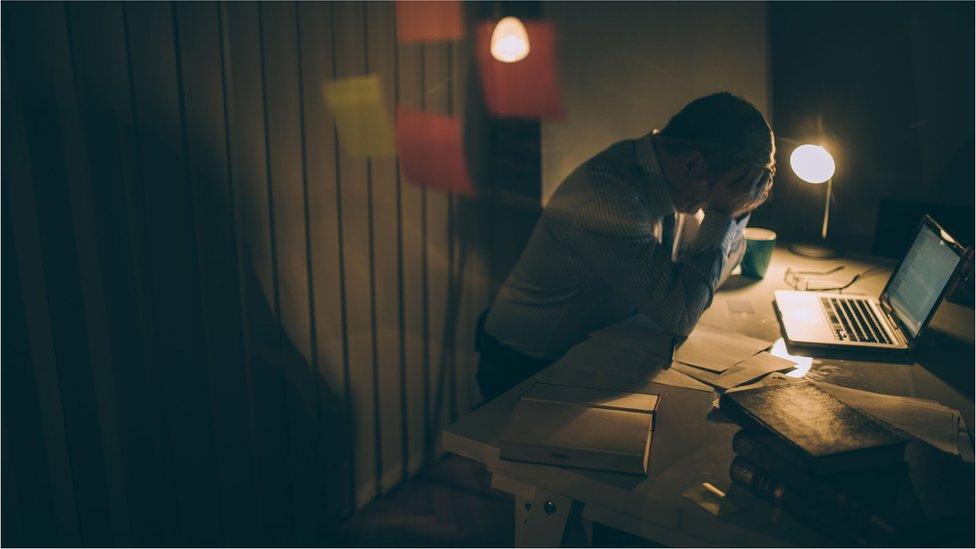
- Published8 May 2019
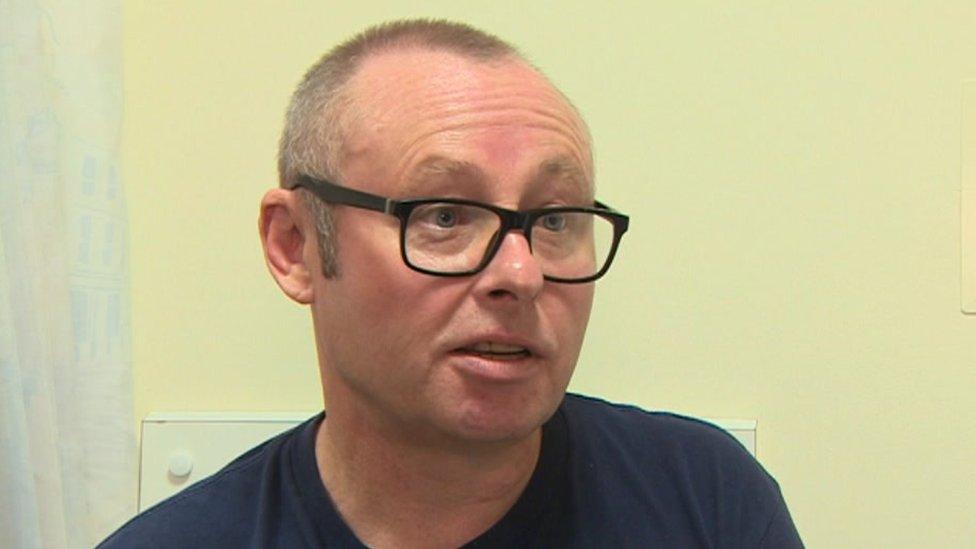
- Published2 December 2018
